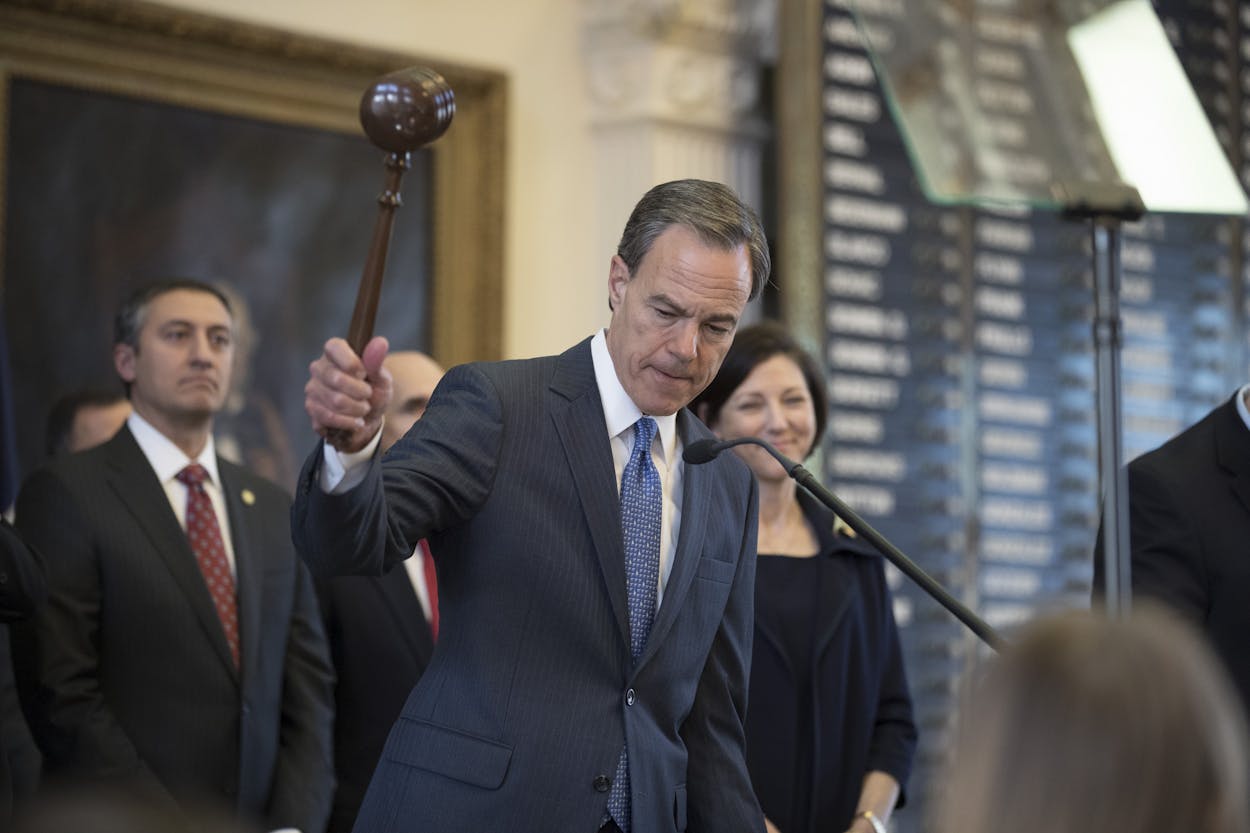It should have been an easy day in the Texas House. We’re only seven weeks into the session—well within the honeymoon period when lawmakers are still spending most of their time passing commemorative resolutions and praising each other’s leadership. In fact, Wednesday marked the full House’s first significant legislating, and the two bills on the agenda couldn’t have been less controversial: widely supported proposals to reform the troubled Child Protective Services department.
So it was rather surprising to see the debate devolve into bitter accusations of racism and hypocrisy.
It all started innocently enough. The bills in question—House Bill 4 and House Bill 5—would allow payments to family members who take in foster kids and separate the Department of Family and Protective Services—which includes CPS—into a stand-alone agency. There was no serious opposition to either bill. Some House members wanted to increase the amount of money that family members could receive—an exchange that featured Jonathan Stickland, a tea party Republican from Bedford, actually advocating for more state spending for the first time, well, ever. A compromise was quickly forged. Everyone seemed to agree that foster kids are better off when placed with responsible family members and that those family members should be paid a reasonable amount by the state for doing so (they’re currently not).
Everything was going swimmingly until Mark Keough, a second-term Republican from The Woodlands, offered an amendment to HB 4 that would have barred CPS payments to any caregivers who are undocumented immigrants. Keough is a pastor who left his career as a car salesman to found his own ministry. His proposal suddenly put the House in tense, late-session form, and he seemed to know it. “I know many of you feel this is a bad [amendment],” he said. “But I think this [amendment] is on the side of virtue.”
Democrats lined up at the back mic to attack him. Dallas’s Rafael Anchia wasted no time cutting to the bone. Why, he asked, would Keough want to punish vulnerable kids because their relatives had crossed into the country illegally, an act the kids had nothing to do with. “You’re trying to conflate children in need with lawbreakers,” Anchia said.
Keough responded that it was important to uphold the laws of the nation. And from there, a debate that had been about helping abused kids morphed into a fierce argument over immigration.
Gene Wu offered what he described as a “compromise” that actually gutted Keough’s proposal, but Keough accepted it anyway. Still, Roland Gutierrez of San Antonio was incredulous that Wu, his fellow Democrat, would even attempt a settlement. “I don’t think you can find a middle ground to hatred,” he told Wu from the back mic. “I don’t think you can find a middle ground to racism.”
Even with the proposal effectively gutted, Anchia took the front mic to rail against it—and the man who authored it. “This feels really racist,” he said. “If we’re starting like this, what the hell is the rest of the session going to be like?”
“These kids—you’re using them as a prop so you can go home [at election time] and beat your chest about immigration,” Anchia said, adding that Latino lawmakers were getting tired of it. And if it continued, he warned, if the House was going to debate tough immigration policy and sanctuary cities, then some Democrats would bring up “sanctuary businesses” that use undocumented workers. He once again called the proposal racist and wondered whether Keough had ever sold cars to undocumented immigrants or used undocumented workers in his business career. It sounded more like a Twitter rant than a House floor speech and prompted Speaker Joe Straus to remind members from the dais that they should stick to discussing the policy at hand.
A clearly emotional Byron Cook then came to the front mic. “I’m broken-hearted,” the Corsicana Republican said. Nothing good was going to come from the amendment, he said. “We can do better.”
When Keough returned to the podium, he had a softer tone. “I’m not a racist,” he said. “I love people. I love the people of my church. And I love all of you.”
If you’ve seen enough heated debates under Straus’s speakership, you could predict that Keough would be talked into withdrawing his amendment, and that’s what happened. Tempers cooled, everyone complimented each other, and the bill passed 145-0.
But this debate may have set a nasty tone for the session. It’s rather unusual to see this kind of animosity on the House floor on March 1, before lawmakers have really even done anything, and it could get worse. Some of the comments made today won’t soon be forgotten.
The deep divisions in the state and the country are seemingly having an effect on the Legislature. Based on what happened Wednesday, the first legislative session in the Donald Trump era could be a nasty, divisive one.






